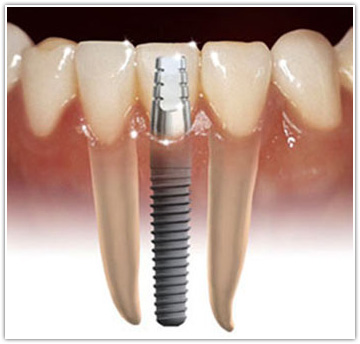Dental implants are a great choice for replacing missing teeth. But, not everyone is a good fit for this treatment. It’s important to know if you’re eligible for dental implants to make the right choice. Certain habits and health issues can affect how well dental implant surgery works for you.
For instance, smoking can slow down healing, especially the joining of the implant to your jawbone. But, if you stop smoking for a while before and after surgery, your chances may improve.
Having gum disease that’s not treated can hurt your gums and bone. It needs to be taken care of before getting implants. Also, your overall health plays a big role in how well the dental implant surgery goes. People with diabetes not under control may have trouble healing. So, it’s important to get that under control first.
Some medicines like steroids and blood thinners, as well as radiation to your face and neck, can also affect your ability to get implants. Talk to your dentist and doctor to fully understand the risks and the steps needed for the surgery.
If you’re still growing, like as a teen, you need to wait until your jawbone is fully formed. This is because not having a fully developed jawbone can make the implant less stable.
Key Takeaways
- Smoking affects healing and osseointegration; stopping might make you a better candidate.
- It’s crucial to treat gum disease early to avoid problems with your gums and bone.
- Managing health issues like diabetes is key for the success of the surgery.
- Be sure to discuss any medications and treatments like radiation with your dentist and doctor.
- Implants in young adults need a fully grown jawbone for better support.
Gum Disease and Oral Health Issues
One key reason why people can’t get dental implants is if they have a lot of gum disease. This bad condition affects the gums, teeth, and the bone in the jaw. It makes the place where the implant goes too weak. So, people must treat their gum disease before they can get implants. This could mean having surgery to fix their gums or other treatments. It’s all about making the mouth healthier before getting implants.
For those who do get implants, taking care of their mouth is very important. They need to keep their gums healthy and see the dentist often. Also, quitting smoking is a must. Smoking can make implants fail more often and hurt the mouth in other ways.
If gums are pulling back, more work might be needed to help the implant stay put. This work not just stops current problems but also helps implants last longer. It’s all part of keeping the mouth clean and getting the right care on time. These steps are key for dental implants to work well.
General Health Conditions Affecting Eligibility
The success of dental implants links closely with a person’s overall health. Some health issues might make you not a good candidate. For example, if you have diabetes, you might face a higher risk of infections and slow healing. This makes getting dental implants harder.
People with autoimmune diseases should also be careful. This is because some medications they take can slow the healing process. Problems can also arise for those with chronic health conditions or a history of face and neck radiation. They might have a higher chance of dental implants failing.
Before getting dental implants, it’s important to talk to dentists and other health experts. They will check your health to see if you can get implants safely. Even older adults can get dental implants if they’re in good health. Managing your health conditions is key to having successful dental implant treatments.
Who is not a good candidate for dental implants
Not everyone can get dental implants. Smoking is a big no because it weakens healing and implant strength. If you have gum disease or diabetes, you’re at risk too. It’s best to treat these before thinking about implants.
Teens and young adults usually can’t get dental implants. This is because their jawbone is still growing. It has to be fully developed to support an implant. Also, having enough jawbone for the implant is very important. If there’s not enough, you might need a different kind of implant.
If you’ve had radiation therapy near your jaw, things get more complicated. A thorough check-up is needed to see if implants are a good idea. Taking good care of your dental implants is key to their long-term success. This means regular check-ups and keeping good oral hygiene.
- Persistent smokers may face complications in implant treatments.
- Untreated periodontal disease must be addressed before implant procedures.
- Poorly-controlled diabetes can delay dental implant consideration.
- Young age dental implant restrictions apply until full jawbone development.
- Assessment is crucial for patients with a history of jaw-related radiation therapy.
Having the right jawbone and staying healthy are crucial for dental implants to work. Although implants are great for replacing teeth, not everyone can get them. This makes early checks and treatments very important.
Conclusion
Getting dental implants is a complex journey. It starts with checking if you’re fit for them, looking at your health, oral state, and body structure. You must follow the advice given before and after the treatment. This includes taking good care of your teeth and seeing your dentist regularly. Dental implant considerations also consider if you smoke, the condition of your gums, and if you have illnesses like diabetes. All this is to make sure the implants work well.
Implants are a big but worthy investment for your mouth’s health. They can last 20-30 years, much longer than other choices. Other benefits include less chance of cavities or gum disease when compared to bridges or partial dentures. The beginning cost might be $5,000 to $6,000 in Charlotte. But, you might need more work like bone grafts, which can raise the cost. Not all insurance covers the full cost of implants. Some parts, like the abutment and crown, might be covered.
Before getting implants, you should talk a lot with your dentist. They will plan the best way to treat you. These talks cover what extra work, if any, you might need, how to keep your mouth clean, and payment options. After getting implants, you still need to care for them and go for checks. This keeps them lasting long and working well. With the right advice and preparation, you can get the best tooth replacement for you.
FAQ
Who is not a good candidate for dental implants?
Not everyone can get dental implants. People with poor bone density or severe gum disease may not qualify. Also, heavy smokers, those with uncontrolled diabetes, and those with immune deficiencies should be cautious. Pregnant women and young adults with developing jawbones are usually not recommended for this procedure.
How does smoking affect dental implant eligibility?
Smoking is bad for dental implants. It slows down healing and can cause the implants to not bond with the jawbone well. This increases the risk of failure. But, quitting smoking before and after the surgery can help improve your chances.
Can gum disease affect dental implant success?
Absolutely. If you have serious gum disease, like periodontitis, you must treat it first. This disease can harm the bone and gums, which is bad for the implants. You need healthy gums and bone for the implants to work well.
How do chronic health conditions impact dental implant recovery?
Chronic illnesses can make recovery harder. For example, if diabetes is not controlled, it can slow healing and raise the risk of infection. It’s vital to have these conditions managed before considering implants.
Are teenagers good candidates for dental implants?
Usually, teens are not good candidates for implants. This is because their jawbones are still growing. A fully developed jawbone is needed to properly support the implants.
Can medications affect dental implant success?
Certain medications, like steroids or blood thinners, can make healing harder. This might affect how well the implants work. Always talk to your dentist about the medicines you take to understand any risks.
What role does bone density play in dental implant eligibility?
For dental implants to work well, you need strong jawbones. If your jawbone isn’t thick enough, you might need a bone graft. This helps ensure the implants are secure.
Can radiation therapy impact dental implant placement?
Yes, radiation therapy can make implant surgery riskier. If you’ve had radiation, your dentist will need to check your risk factors. Coordination between your dentist and oncologist is key for a safe decision.
How does general health status influence dental implant candidacy?
Good health is needed for implant success. This means no major health issues that could slow healing. Your dentist must make sure your health is up for the procedure.
What are the alternatives if I’m not a candidate for traditional dental implants?
If regular implants aren’t an option, there are alternatives. These can include mini implants, bone grafts, or other treatments. A trusted dentist can help you find the best solution possible.
Is there an age limit for dental implants?
No, there’s no age limit for getting dental implants. As long as you’re in good health, you could be a candidate at any age. Seniors, if healthy, can also have successful implant treatments.







